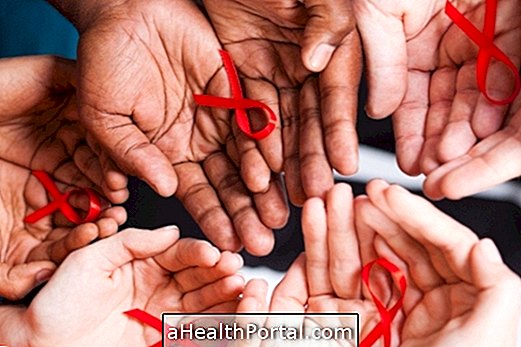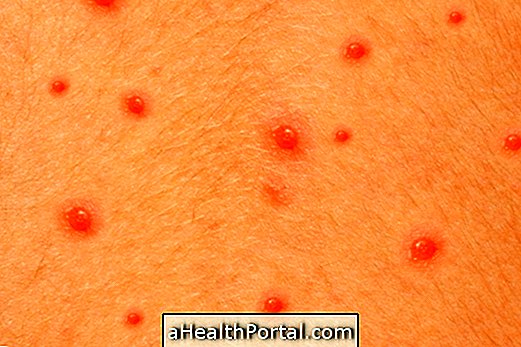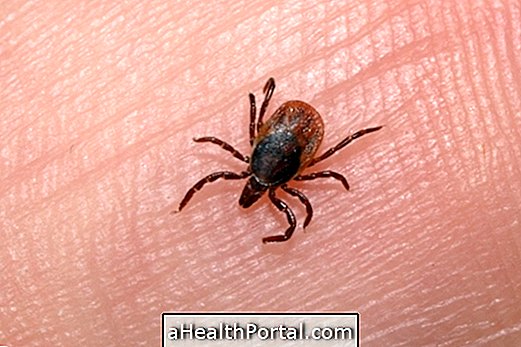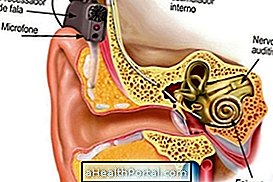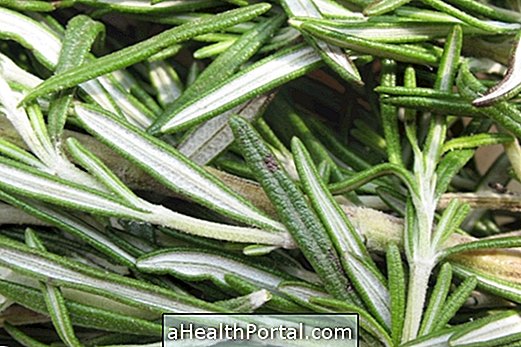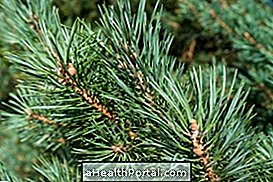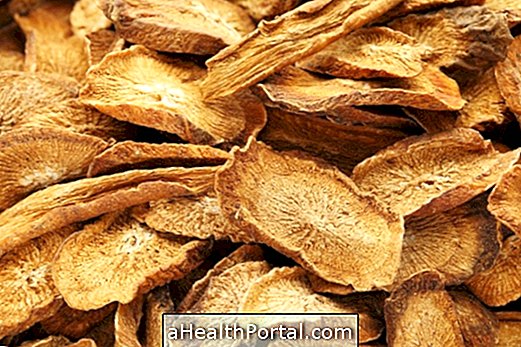Pigeons are very common animals in any city, but can be a danger to human health, since they can transmit various diseases, known as zoonoses, such as cryptococcosis or salmonellosis, for example.
However, transmission of this type of disease happens mainly through poop and therefore, although it is not necessary to eliminate pigeons, care must be taken to avoid direct contact with the feces. In addition, it is important for cities to properly clean their stool, since when they dry they can become dust and end up being sucked into the lungs.
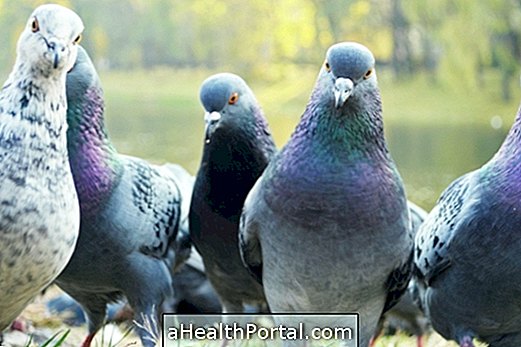
The main diseases transmitted by pigeons are:
1. Cryptococcosis
Cryptococcosis is one of the major diseases transmitted by urban pigeons and is caused by a fungus that lives and develops in feces. When this fungus is breathed in, it first infests the lungs, but then it can spread to the organism and even cause a severe type of meningitis. Learn more about this disease and its symptoms.
Possible symptoms : most common include shortness of breath, constant sneezing, coryza, weakness, and pain throughout the body.
What to do : You should go to the emergency room to confirm the diagnosis, since the symptoms are similar to many other illnesses, including influenza. Usually the treatment of this infection is done with the use of antifungal medicines, like Fluconazol, at home.
2. Salmonellosis
Although salmonellosis is more frequent after eating poorly washed or poorly prepared foods, transmission of Salmonella bacteria can also occur due to pigeon poop. This is because when stool dries up and turns to dust, they can be carried in the wind to fruits and vegetables that, if not washed well, can contaminate the body.
Possible symptoms : may include nausea and vomiting for more than 24 hours, severe diarrhea, low fever and constant belly pain. Check out how to identify a case of salmonellosis.
What to do : Most of the time the symptoms improve after 3 days. It is only recommended to rest at home, eat light meals and drink plenty of water. However, if your symptoms do not improve, you should see your doctor.
Viral encephalitis
Pigeons are one of the most important reservoirs for viruses such as West Nile virus or St. Louis encephalitis. These diseases can infect the nervous system and cause different symptoms, including loss of consciousness and risk of death. This type of encephalitis is transmitted by mosquitoes, which after stinging the pigeons, can sting humans and pass the virus.
Possible symptoms : vary according to virus and severity, however frequent symptoms are severe headache, high fever and seizures, for example.
What to do : It is recommended to go to the emergency room immediately to make the diagnosis and start the appropriate treatment, which usually includes the use of antipyretics such as Paracetamol and anticonvulsants such as Carbamazepine. Learn more about encephalitis and its treatment.

4. E. coli
E. coli, also known as Escherichia coli, is a bacterium that lives in the intestines of humans, but is also present in large numbers in the feces of pigeons. To avoid this type of infection it is important to wash your hands after being in an environment with pigeons, such as parks, for example.
Possible symptoms : Abdominal pain, excessive tiredness, nausea, vomiting and diarrhea often occur. Learn how to identify signs of E. coli infection.
What to do : In many cases, this infection can be treated at home with rest, water intake and diet with light foods. However, if the symptoms are very severe, if they get worse or if they occur in children or the elderly, it is important to go to the emergency room to start using medicines that improve the symptoms while the body fights infection.
5. Toxoplasmosis
Toxoplasmosis is a disease closely associated with cat feces, but can also be transmitted by pigeon poo. Although in healthy people, the parasite of this disease does not cause any symptoms, in people with weakened immune system such as pregnant, elderly or children can cause a generalized infection.
Possible symptoms : They are very similar to those of a cold, including fever, generalized muscle pain, tiredness and neck glands.
What to do : When there is a suspicion of toxoplasmosis, consult your GP to start treatment with antibiotics, especially Spiramycin. See more about treatment and how it should be done during pregnancy.
